

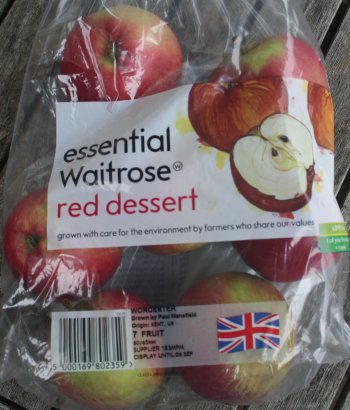 The new season is hotting up with more new season varieties launched, 'almost day by day'
The new season is hotting up with more new season varieties launched, 'almost day by day'
Discovery is still available, and will be as an Organic option for a while yet; Organic Discovery has a much firmer texture than Conventional, so consumers can be confident of a 'good eat' with organic for a few weeks yet!
The English Apple Man bought Worcester Pearmain this week; 'takes me back to my youth' (I am eating one as I write this!) and Estivale, Early Windsor, Suffolk Pink, Sunrise, are on the shelves, or will be asap. Expect Organic Falstaff and Spartan in early September.
GALA CLUB - For Apple Growers who are followers of 'The English Apple Man' a reminder!
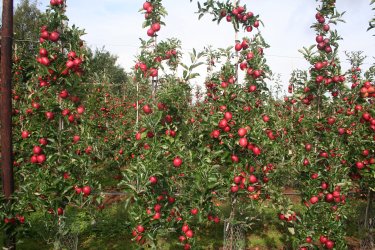
Next Wednesday 31st August the annual Gala Club Pre- Harvest Workshop takes place at Giles Cannon's Roughway Farm at Plaxtol in Kent. The evening starts at 5.30pm, with supper at 7.30/8pm. £10 for non Gala Club attendees!
If any fruit growers who have not received communication from Gala Club wish to attend, PLEASE contact Gala Club Secretary, Malcolm Withnall on 01622 736392 or mwithnall@aol.com
Giles Cannon is well known to the Gala Club, hosting a previous walk several years ago. He has enjoyed many years of successful Gala growing. Club members will enjoy seeing his current Gala orchards, and some other varieties during the farm walk.
Reflecting back to my visit to France last week, Gala clones are worthy of discussion. Consumers may wonder what 'clones' are all about? Is this a case for mysterious xenophobia? Are we manipulating nature?
NO, clones are quite simply where a tree naturally produces a branch which produces a different colour format to the tree in general. Growers then take bud wood from the 'mutant' branch and propagate new trees from this bud wood, the result is a tree producing a different shade of colour (normally 'more' red) than the mother tree. This is known as a clone. The practical application of this clonal improvement is used to produce an apple of uniform description in different geographical regions.
For example, the key weather conditions for producing good red colour on apples is the contrasting day/night temperature.e.g. hot days and cold nights develop the best coloured fruit. BUT, in regions where a natural day night contrast does not exist; Southern Europe, for example, a clone which will develop good colour in Northern Europe, will produce inadequate colour. So in Northern Europe the clone does not need to be naturally 'over red' but in Southern Europe the 'clone' needs a higher natural red colour.
The pictures below explain the 'choices' made by growers in different regions to achieve a consistent visual product.
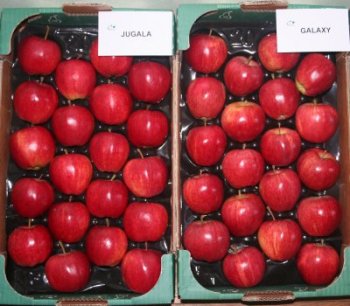
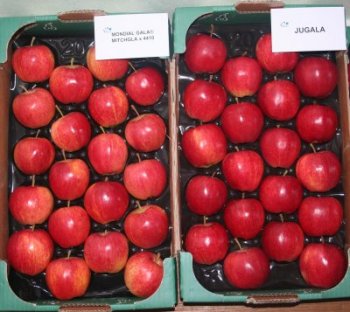
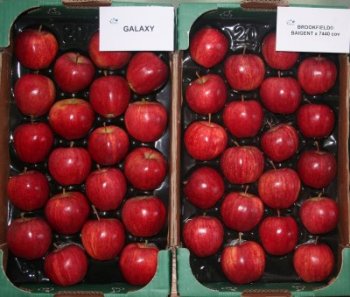
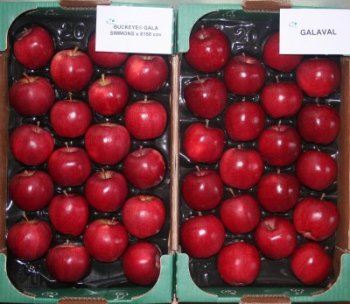
The main Gala clones used in England to date are Mondial and Galaxy as their colour meets UK consumer satisfaction. Buckeye is darker and more likely to be grown in France, while Galaval is much darker and ideal for a hotter climate like Morocco where the nights are not cold enough to initiate sufficient colour on a more naturally lighter coloured clone. Galaval would produce a very dark red if grown in England, not in keeping with our perception of Gala.
FRANCE
My French 'sojourn' was short, with only 24 hours spent in nurseries, trial plots and production orchards, however we covered a lot of interesting subjects in that period of time.
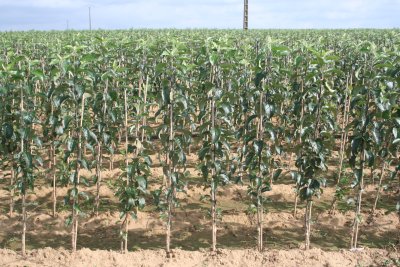 Bruno Essner the owner of Pépinières du Valois and his colleague Fiona Davidson first presented us with an update of their business developments over the customary coffee.
Bruno Essner the owner of Pépinières du Valois and his colleague Fiona Davidson first presented us with an update of their business developments over the customary coffee.
Valois Nurseries was created by Charles André in 1957. Bruno has been leading the company which produces around 1 million apple and pear trees each year and 500,000 stone fruit trees since 1990.
The English Apple Man was a regular visitor to Valois back in the 1980's when the 'enigmatic' founder Charles Andre was still running the business. Back then, Charles recognised the talents of a 'young' Bruno and paved the way for him to take over the Valois business.
Now in 2011, Valois has nurseries and production orchards in the beautiful Picardy region East of Paris. In addition Bruno has developed rootstock nurseries in the Loire Valley and joined another nursery in the formation of IFO - International Fruit Obtention a dedicated research station in the Loire Valley.
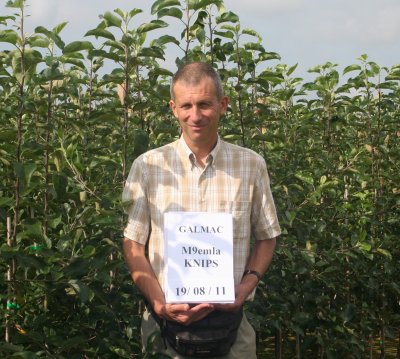 Valois Nurseries now have 40 hectares of orchards divided into two sites: one in Picardie and the other one in the Loire Valley.
Valois Nurseries now have 40 hectares of orchards divided into two sites: one in Picardie and the other one in the Loire Valley.
The Valois team has about 60 employees working in both sites on different activities, nurseries, production orchards and new variety trials.
We were a small group; it would have been more, but the early season 'scuppered' the plans of other potential visitors who had to stay home and concentrate on harvesting instead. However we saw many items of interest during our visit.
In the 'new variety' trial plots, GALMAC; "only a few left on the trees as it is an early variety and France is well ahead of the UK" is much in discussion and newly planted on various sites back home, JUGALA an early Gala clone, JEROMINE a Red Delicious clone, with a very dark, almost black appearance also caught the eye of some of us, ANGELYS a cross of Doyenné du Comice and Doyenné d'Hiver considered to be of very good taste and very good storage potential, is highly thought of by Bruno and his team. It is a Club variety.
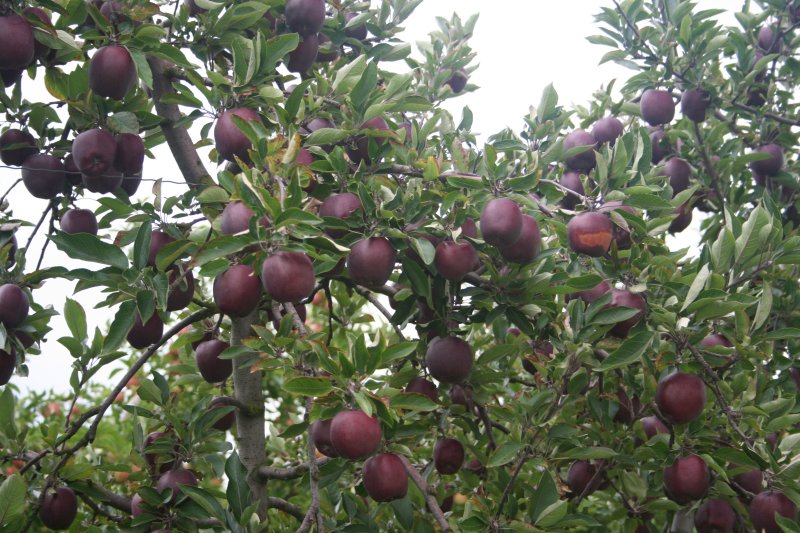
While in the commercial trial orchards, East Malling Research (EMR) pear rootstock 'EMH' which is being trialed by Valois on behalf of EMR and planted in 2004 carried very heavy crops of Conference and Comice.
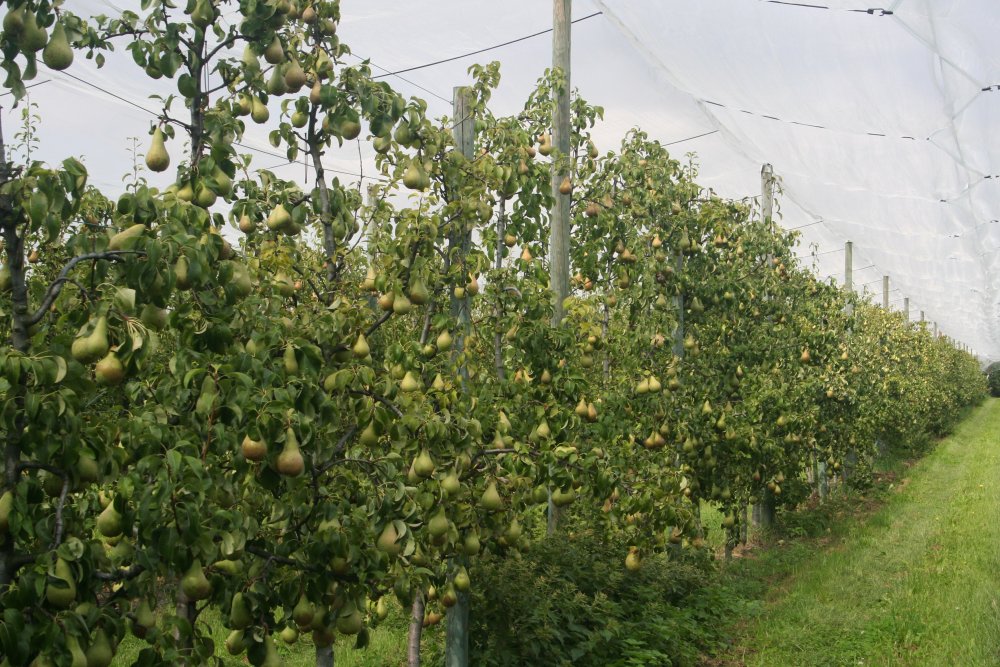
An extract from EMR website! EMH is a dwarfing quince rootstock, which induces large fruit size in pear scions grafted or budded onto it. Previously known as QR193-16, it was trialled under projects supported by the East Malling Trust for Horticultural Research (EMTHR) and the APRC. Due to its excellent performance it was selected, named and released as part of the commercially funded HRI Apple & Pear Breeding Club.
Fruit size in pear has become more of an issue in recent years, so the development of a rootstock that consistently produces larger fruit than trees on EMC or EMA in the UK and in mainland Europe has been welcomed by the industry.
Yields on both Conference and Comice at Valois are very good, but while Bruno is enthusiastic about Conference on EMH, his experience with the commercial trials suggests Comice is better on the standard Quince C rootstock.
Two more Pear varieties which caught our eye, were Regal Red and Angelys; both Comice clones. Regal Red is a full coloured red Comice while Angelys is a smooth russeted Comice clone.

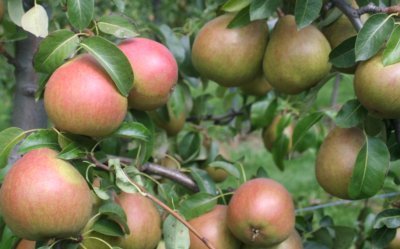
There is far too much to write about in this one issue of the Journal, but worthy of a mention are the Conference Pears seen at Theirry Fournierre's Farm.
Regularly yielding 45 tonnes per hectare of bold pears with a clean, green skin finish.
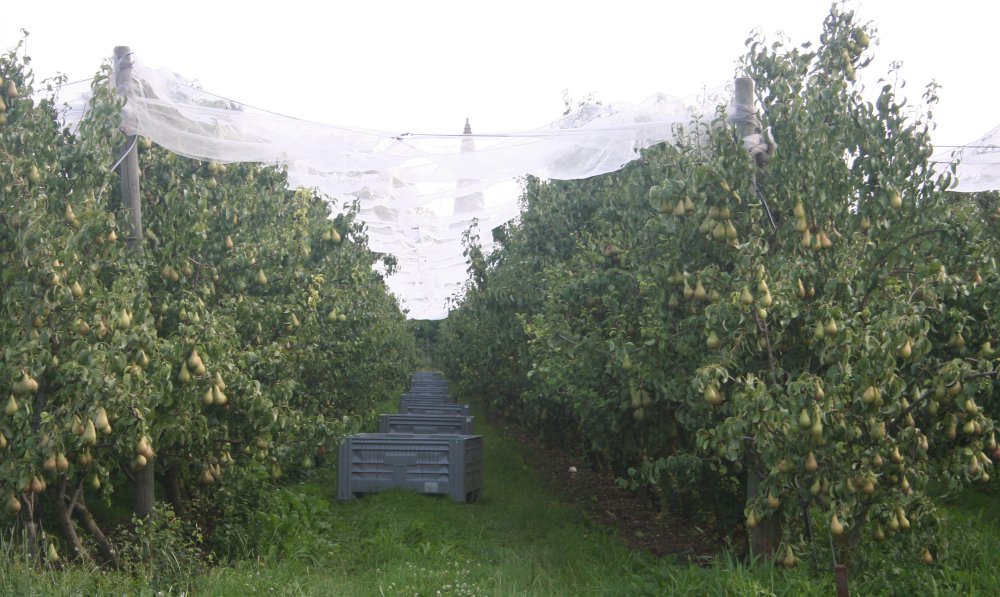
Oh' how we would love to achieve the same results in England!
Until next week!
Take care
The English Apple Man